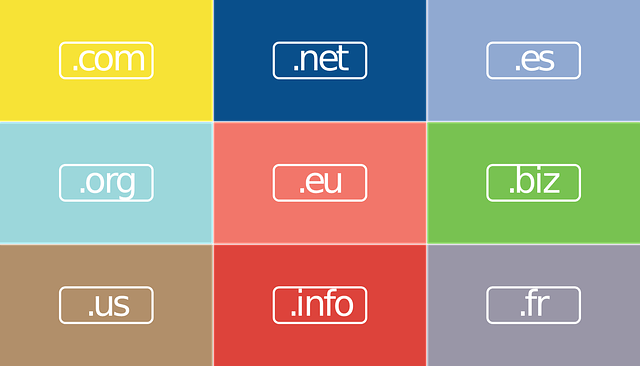Choosing real estate online to pitch your business tent can be challenging: it can also be exciting. It takes intentional efforts and a true sense of business self to decide where to establish your corner of the internet market.
Brick and mortar businesses have known and operated under the principle of location, location, location for decades. While the internet is disrupting many ways that business is conducted, this still holds true – to an extent.
Creating a domain name that represents your product or service and making your presence known to your community are similar to the opening of physical doors of your store. To start, you need a strategic location and a purposeful name.
Why does this matter?
Because first impressions do matter
Your URL is the first thing visitors will see. Before seeing your site’s landing page, your business name, or your product or service, they are going to meet your URL. Selecting a good domain name will make a positive and long-term impression, while a bad domain name can turn guests away before they even get to your website. It’s like sending them into a dodgy neighborhood for home security systems. It’s not going to make them trust you or your offerings.
It affects SEO
Browsers are getting smarter by the day. This is driven by the search patterns and demands of the public you desire to connect with. Search parameters don’t matter like they used to. However, keywords in your domain name will still push your SEO ranking to the forefront. If you want to be found, make your URL and business name easy to find.
It defines your brand
Your domain name is a branding opportunity. Using a domain name or URL that coordinates with your entity or product will boost your brand recognition. Just like using a billboard on a high traffic street, creating a memorable name will draw visitors to your site.
Creative URLs will also be shared via word of mouth and through search engines using related keywords or topics that reflect your brand. Let it stand out from the crowd a little.
Strategic thinking about URL names will also build trust with visitors. If they quickly recognize a word in your domain name, they will gravitate to it faster than the competition who does not sue familiar descriptors.

Following these tips and you can broaden the stakes of your online land claim
Understand that the average person searching for your webpage is most familiar with a .com at the end. If you are unable to purchase that extension, try for .net or .org next.
If that fails, be careful, but creative with others then, leverage the daylights of that unique extension. Build it into your brand heavily of you can: put it in your logo, accent it when you talk about it, play word games with it in conjunction with your business name.
Make them easy to pronounce. If it’s it too hard to spell, pronounce or remember, your guests will either ignore it or dismiss it. Either way, it will not get you the desired result of website traffic.
Similarly, keep URLs short. Too many words or letters will turn customers off. While it can be done, it will take an unnecessary amount of work to build it into your messing and branding schemes.
When thinking in terms of searchability look carefully at keywords that you can use to boost your visibility. Keep them broad, but not obscure.
Do your homework and make sure beyond any doubt that you are not infringing on another company’s trademark. Like you, they have worked hard for their piece of the online market real estate and will protect it – sometimes fiercely. That means legal action against you. Don’t risk it.
Research also applies to various social media platforms and the availability of the name you choose. If you use too much variety between your domain name, business name, social media accounts, and other marketing venues, you will lose your branding power. You will confuse visitors and they will give up searching for you. See the next point for the best way to avoid this kind of inconsistency.
Find word or name combinations that are easy to remember and intuitive to the product or services that you offer. Clever can be a fun and effective way to draw attention to yourself. Just make sure it searchable and relatable.
Watch out for trendy colloquial language that may not have staying power with your company as it grows. www.onfleekproducts.com is not going to be relevant years from now when your product is long-term life insurance.
If you have an established presence in a particular city or community but are looking to expand, you can modify it a domain name to tailor it for expansion locations. Say you re headquartered in Seattle and your opening a location in Boise using the same name, you can use that in your domain name. e.g. xyz-catering-Boise
Avoid using hyphens or other punctuation that makes it difficult to type or remember.
A name generator is an effective tool for brainstorming URLs and can get you thinking differently about potential upsets with unavailable domains or URLs.
If you are considering starting a blog or business that is closely associate with your name, start there. This works well for authors, artists and speakers. You want your customers or clients to buy YOU. Give them that in your domain name.
The point is that your digital and physical storefront should be easily and frequently searched.







